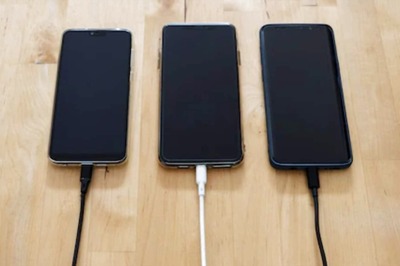
views
Nearly one in four Indians have directly experienced fraud while transacting online, a new report from global information services company Experian said on Monday.
As brands and consumers are looking for easier ways to buy and sell products online via mobile devices, the opportunity for online fraud is escalating simultaneously, suggests the report titled "Digital Consumer Insights 2018".
"Through the study we observed that consumers from India, are driven by convenience and are less aware about online frauds when compared to other APAC (Asia Pacific) countries like Singapore and Hong Kong," Experian India Country Head Vaishali Kasture said in a statement.
"Prevalent customer practice to bear the cost of the fraud is not a solution to mitigating digital frauds. More needs to be done to build awareness and collectively fight fraud," Kasture added.
The report, prepared in collaboration with market research firm IDC, is based on responses from a consumer survey involving 3,200 respondents across 10 APAC markets namely Australia, China, Hong Kong, India, Indonesia, Japan, New Zealand, Singapore, Thailand and Vietnam, Experian said.
While the report suggests that greater digital convenience is linked to higher fraud exposure -- presenting a problem for both consumers and businesses -- it has also revealed a silver lining for companies.
The report showed that as consumers became aware of the risk of fraud, they were more likely to adopt security measures like biometrics, including fingerprint scan, facial and voice recognition.
"As 53 per cent Indians have suggested their openness to share data in order to create appropriate fraud detection measures, it signals a positive step towards curbing online frauds. This also provides a good opportunity for firms to partner with the most important stakeholder, the consumer, to build a robust online ecosystem," Kasture said.
Furthermore, the report showed that consumers also tend to actively share inaccurate data in order to protect their personal data.
Data input errors were highest in Thailand, followed by Vietnam, Indonesia and India, while Japan has the lowest erroneous submissions.
At 70 per cent, India stands fourth among APAC countries for erroneous data sharing, the findings showed.
With respect to frauds, Indians are most tolerant towards telecommunication service providers (57 per cent), followed by banks (54 per cent) and retailers (46 per cent), the report said.
Watch: Honor 7C Review | Premium Looks in a Budget




















Comments
0 comment